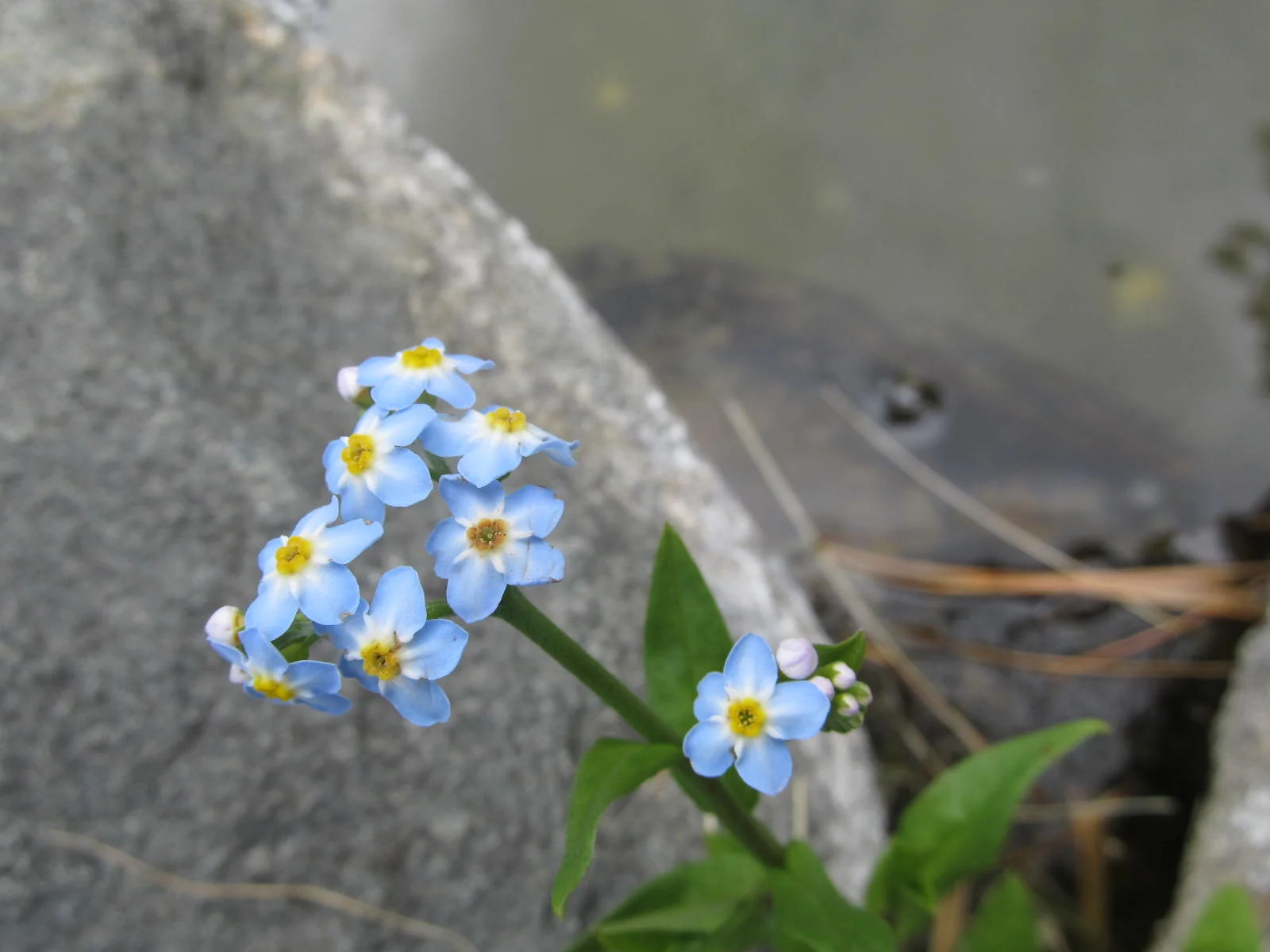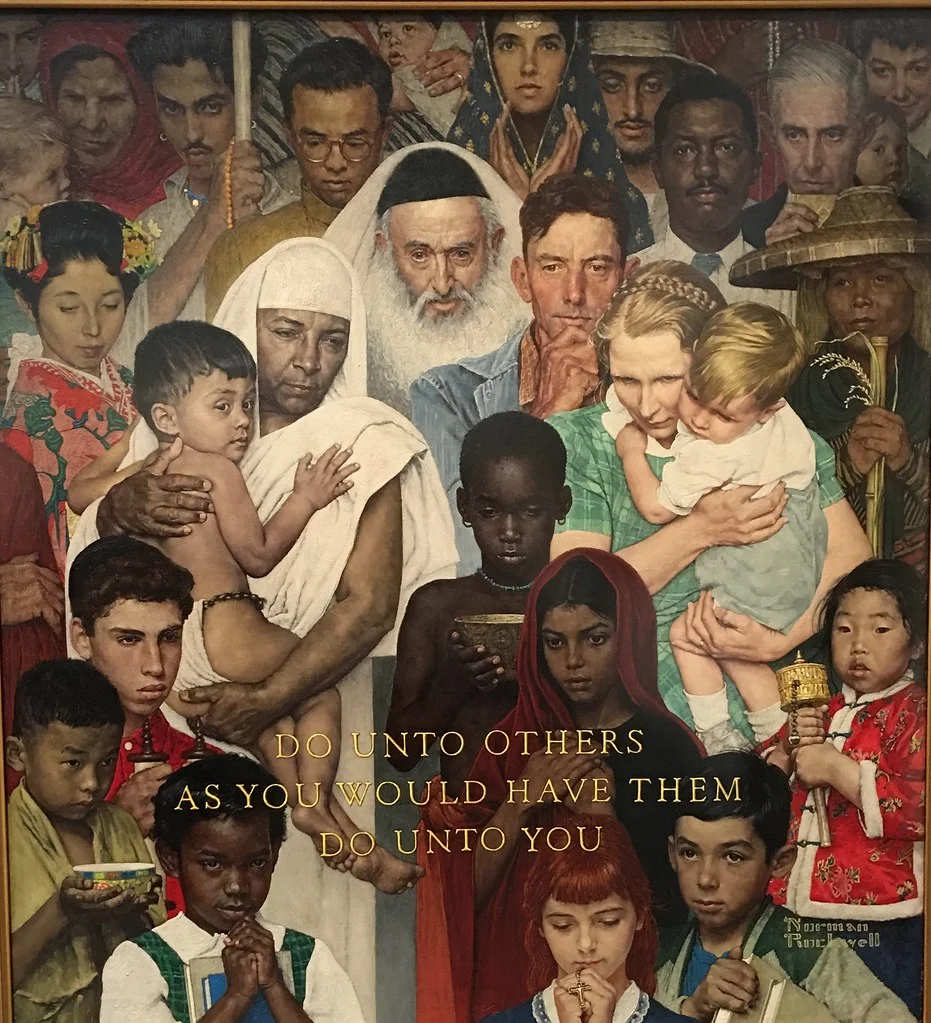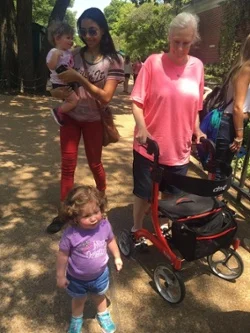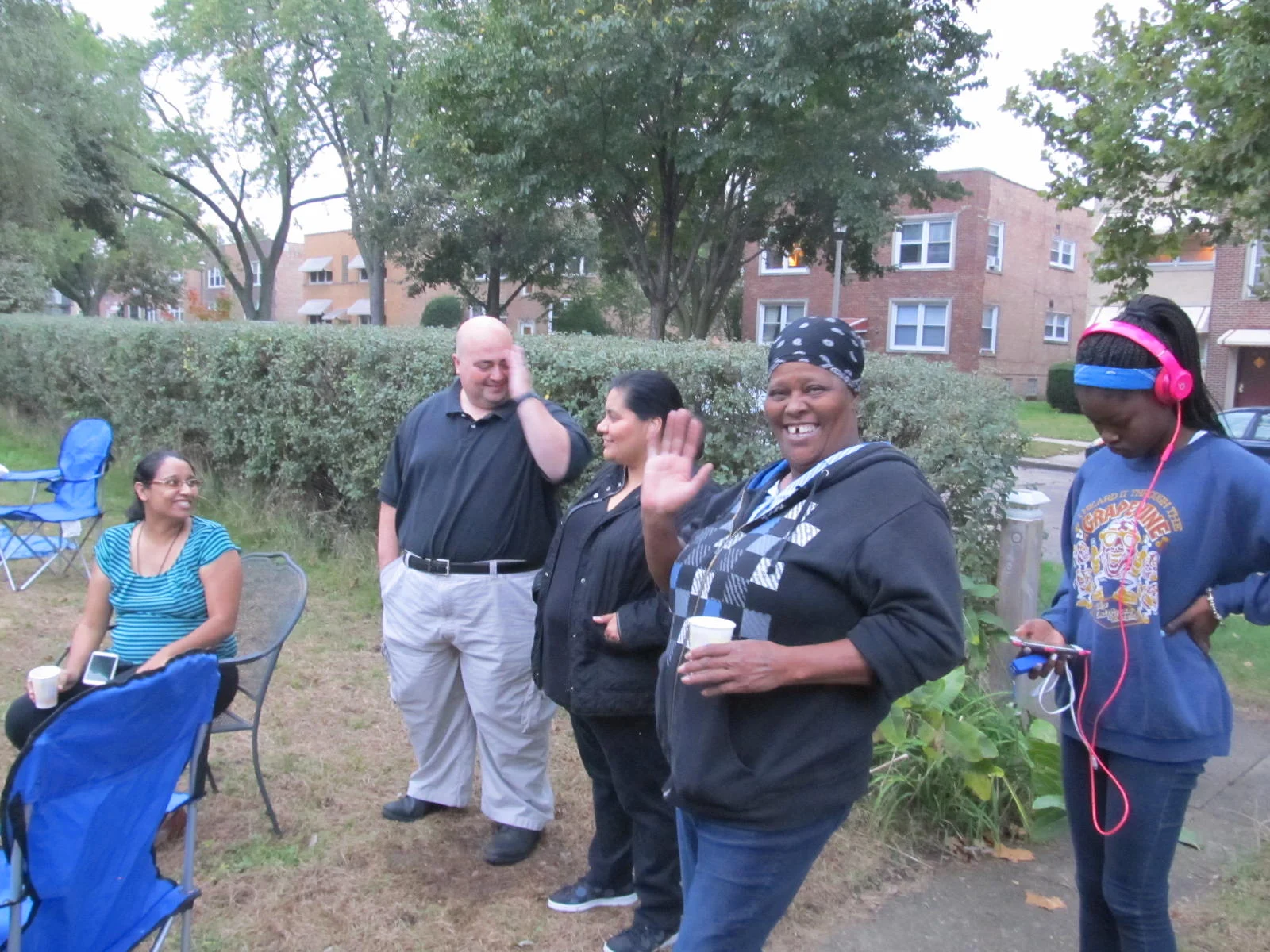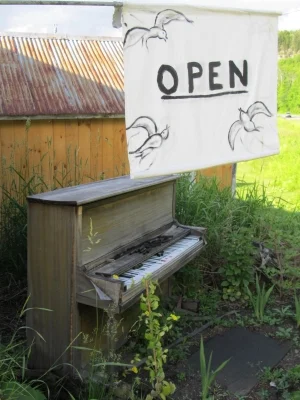My Blog
I remember Papa. “It’s the small acts of selflessness and kindness that are remembered and cherished the most. You may have forgotten the act because it was a small thing, but the person who was the beneficiary of the kindness remembers it forever.”
Today is Liz Brucker’s birthday and what I see in my mind’s eye is the two of us with silly smiles walking arm in arm down an avenue on the east side of Manhattan in the early spring of 1986. We had just seen the movie Hannah and Her Sisters and were at that very moment, a moment that I can replay in my mind as long as I am conscious, happy. It is in the bond between two people where the theology of small things reveals itself. Liz, my best friend, died 25 years ago. In the turbulence of young adulthood, Liz and I came to see that the meaning of life is in the living of it.
In this apocalyptic age, nothing speaks to me about the meeting of big systems with small gestures like the mournful American man throwing his guitar away into Hiroshima Bay and the Japanese woman retrieving and returning it. Far from dismissing Jaco Pastorius as deranged, I see him as acting in the only way a sensitive heart can respond to being an American in Hiroshima. I listen to the recording of Jaco playing “Amerika” that night on this same bass and think of Hiroshima and this woman. Perhaps he did too.
To think of the theology of small things is to think about the present moment. It is to hear the birds right now, the hum of cars right now, each breath, right now. It is to see that greatness does not have to transcend the individual but can be the individual. Sometimes, the whole really is the sum of its parts. The outstretched hand from one human being to another living being is enough. To save a life is to save a world.
Only through a public reckoning with our terminology can we get to the truth of the United States, which is that we are a nation of homes, not a homeland. Homeland today is a loaded phrase, empty of content while laced with sentimentality and bigotry. Instead, let us reclaim from the Declaration of Independence, “We hold these truths to be self-evident, that all men are created equal," the foundation of Dr. King’s Beloved Community. There is no Department of Homeland Security in the Beloved Community. Instead, our security strengthens or weakens only as a measure of our communality.
To be a Black woman in America today is to live on the edge of hypervisibility and invisibility, as poet Claudia Rankine wrote in Citizen. If she is poor and elderly, to boot, she is hidden. But not to us at H.O.M.E., rooted in the faith-based principle that each human has intrinsic worth, and isolation is antithetical to our very being. Illustrating the desire for both independence and association, Mable, a long-time resident of H.O.M.E.’s Nathalie Salmon House, described how she likes not only having her “own private room and mailbox key” but also making breakfast in “a place where I have community.”
Who would you like to be your neighbor? It used to be typical that children would take in parents, “maiden aunts” or bachelors. Today, depending on region, income, or culture, only about ten percent of older adults in the USA live with their extended families. Whether an older adult is wealthy, middle-income, or poor, each person’s need for community – a community that invites people of all ages through its doors – should be honored.
When asking for funding for your social service project, emphasize what is going right and how your work employs these strengths to improve people's lives. Focusing on neediness only reinforces "treatment" strategies that actually weaken rather than build community.
What are we supposed to make of John Hampson's "bug art"? To me, what matters is how we view the work. We have a choice. We can view the pieces as the Fairbanks describes them, as insects “meticulously positioned on wood and lovingly framed.” Or we can interpret them as shadowboxes that stand at the crossroads of self-expression and destruction. These works can serve to pull us like a moral clarion call to honor natural life rather than to destroy it. At the Museum of Everyday Life a few miles away, celebrate what is living and breathing.
With all the noise about fake news and conspiracy theories at fever pitch following the election, one fundamental but understated truth stands out: our trust of and even acquaintance with our neighbors is at a new low. It is no wonder that fear of “the Other” reigns in the form of bigotry, gun violence, and general resistance to giving anyone either a hand up or a hand out. The solution? Reach out and get to know your next door neighbor.
The truth is that it is almost always women who take the initiative to right a wrong in their neighborhoods. Organizers need to pay attention to the community aspect of community organizing, typically a woman's approach.
Dorian Gray's logic – “What did it matter what happened to the coloured image on the canvas? He would be safe. That was everything.” – is precisely the logic of the gated community. In this morality tale, a social system based on greed and buttressed by fear and repression renders no one, whether within or outside the gate, truly safe. How do we shape desirable communities for all people?
The quiet and humorous atmosphere of the Museum of Everyday Life belies the seriousness of its message. In my contemplation as a "philosopher in residence" here, I not only come to appreciate my toothbrush, I consider the people around me. More often than not in our daily lives, we are oblivious to the individuals as well as the objects who, through their work, enable us to live our lives. But even deeper than this, it is their Being and not their Doing that matters.
America today is replete with forces that simultaneously bring people together and tear them apart. Community organizers and activists can and should be “norm entrepreneurs” who connect disparate people with one another based on values and interests – people who otherwise feel helpless and “the only voice in the wind,” as one woman recently wrote to me. The alternative is to submit to the centrifugal forces of dislocation, violence, and susceptibility to scapegoat-seeking and demagoguery that is the result in the breakdown of democracy.




